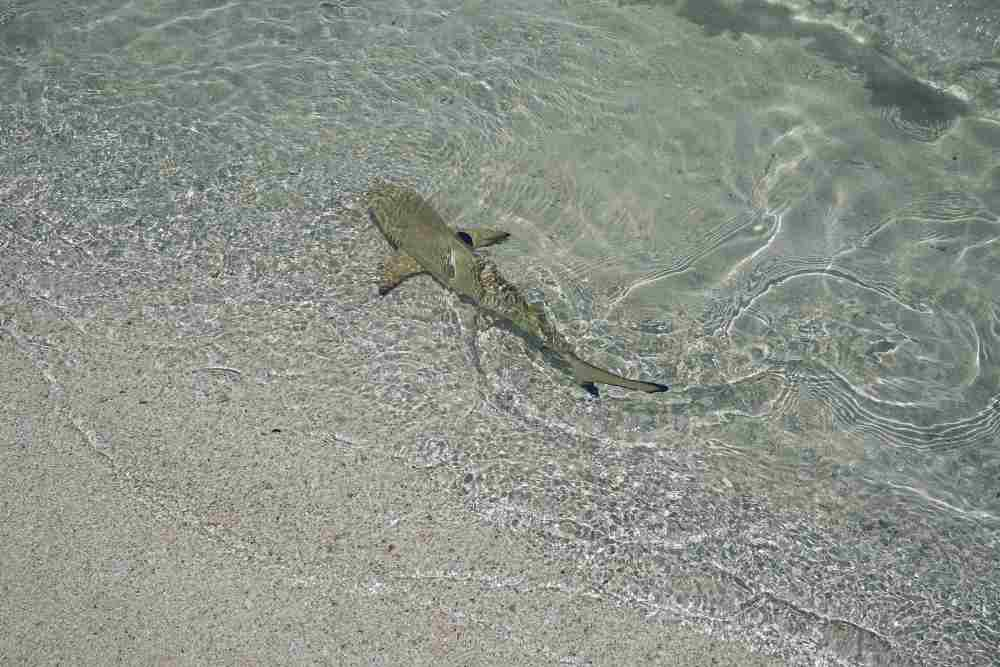A baby shark is called a pup. Baby sharks are commonly referred to as pups.
Welcoming a new member into a shark family is an exciting event. Baby sharks, known as pups, are born in various species and sizes, and they go through an incredible journey of growth and survival.
These tiny creatures face numerous challenges from the moment they enter the world, navigating the waters alongside their larger counterparts.
Understanding the correct term for a baby shark is essential for both shark enthusiasts and those seeking general knowledge about these fascinating creatures.
We will explore the term used to describe a baby shark, shedding light on the characteristics and discoveries surrounding these young marine predators. So, let’s dive into the world of baby sharks and unravel the secrets of their existence.

Variation In Terminology For Baby Sharks
Baby sharks are known by various terms, depending on the region and popular slang. These terminologies might differ, but they all refer to the same adorable creatures. In different areas, baby sharks are called by regional names that highlight the local dialect or culture.
Additionally, popular slang terms are used to describe these young sharks in a casual and playful manner. These variations in terminology for baby sharks showcase the diversity of language and illustrate how different communities express themselves. Whether you refer to them as pups, cubs, or tiny terrors, the endearing nature of baby sharks remains the same, captivating both young and old alike.
Scientific Classification Of Young Sharks
The correct term for a baby shark in the scientific classification is not commonly known. Young sharks are categorized based on their species, and each species has its own proper scientific name. However, there is no specific taxonomic terminology exclusively for young sharks.
It is important to understand that sharks go through certain developmental stages, just like any other organism. While it is easier to refer to adult sharks by their scientific names, the terminology for young sharks is not as well-established. So, if you come across a baby shark, you might need to identify it based on its species rather than using a specific scientific term.
Remember, categorizing these fascinating creatures accurately is crucial for scientific research and conservation efforts.
Age-Based Terminology For Young Sharks
Baby sharks go through various stages in their life cycle, and each stage has its own specific terminology. For young sharks, age-based terms are crucial for accurate identification and communication. During the early stages, when the shark is still an embryo in the egg, it is referred to as an “embryonic shark.
” Once it hatches from the egg, it becomes a “pup” or a “juvenile shark. ” As it grows older, it progresses through different age ranges, such as “yearling” and “subadult. ” These age-related terms help scientists and researchers to better understand and study the behavior, growth, and development of young sharks.
Additionally, they enable effective conservation efforts for shark populations, ensuring that the terminology used is precise and consistent across scientific literature. Understanding the correct terminology for young sharks is vital for scientific research and conservation initiatives alike.
Identifying And Communicating About Sharks Accurately
Using correct terminology when identifying and communicating about sharks is crucial. It helps dispel common misconceptions and plays a significant role in shark conservation efforts. By using the correct term for a baby shark, we ensure accurate understanding and representation.
This is especially advantageous in promoting awareness and education about these fascinating creatures. The proper identification of sharks, even from a young age, aids researchers in studying their behavior, population dynamics, and habitat requirements. Moreover, it allows conservationists to implement targeted strategies to protect and preserve these important marine species.
Emphasizing the importance of accurate terminology is vital for fostering a deeper appreciation and respect for sharks, ultimately benefiting their long-term survival in our oceans.
Maintaining Consistency In Shark Terminology
Maintaining consistency in shark terminology is crucial for proper communication across organizations. By standardizing shark naming conventions, we can ensure that everyone is using the correct term for a baby shark. Consistency brings numerous benefits, including clear understanding and accuracy in scientific research.
However, achieving uniformity in shark terminology poses certain challenges. Different cultures, languages, and scientific fields may have their own naming conventions, leading to confusion and miscommunication. It is essential to bridge these gaps and establish a common language that is understood by all.
Through collaborative efforts and dialogue, we can overcome these challenges and create a unified approach to shark terminology. This will not only enhance our understanding of these fascinating creatures but also foster effective communication in shark-related fields.